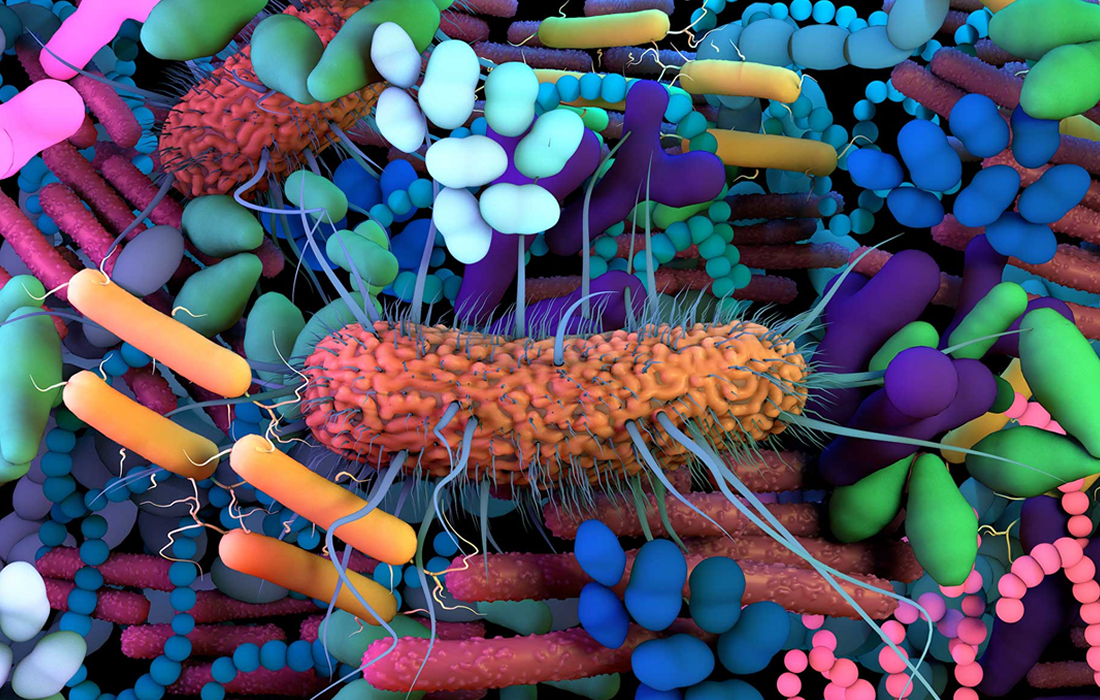Regenerative Medicine News and General Information
Gut Bacteria and Weight Loss
The question of whether or not the ecological composition of the gut microbiome may causally affect weight loss remains somewhat controversial. The composition and diversity of the gut microbiome have been correlated with body mass index (BMI) and metabolic health markers and have been shown to modulate weight gain in mice.
There are many factors with regard to obesity phenotypes including genetis, prior health status, age, physical activity and diet, which can modulate wheter or not a person who is nominally “overweight” or “obese” is considered metabolilcally healthy.
The gut microbiome consists of various bacteria, fungi, and other microorganisms that reside in the digestive tract, with its composition varying among individuals. Some experts believe that the gut microbiome can significantly influence an individual’s overall well-being by modulating metabolism, immune function, and mental health.
These gut microbes influence energy metabolism by regulating glucose metabolism, appetite, and fat storage. Consistent with the role of gut microbiota in energy metabolism, animal and human studies have shown that changes in the composition and function of gut microorganisms are associated with obesity and diabetes.
Recent studies suggest that gut microbiome composition can predict an individual’s response to weight loss interventions. Researchers at the Institute for Systems Biology in Seattle recently investigated how differences in gut microbiota composition may influence the body’s response to weight loss interventions.
The researchers identified the genes that were most abundant in the gut microbiota of individuals before they participated in a weight loss program. Based on the biological functions that these genes perform, the researchers were able to infer the functional profile of the entire gut microbiome.
They found that the functional profile of gut microbiota genes at the onset of the weight loss program predicted an individual’s ability to lose weight. Notably, between the individuals who lost weight and those resistant to weight loss, there was a difference in the abundance of microbiome genes that scientists know to influence human metabolism.
In the study, researchers analyzed data from 105 patients who had enrolled in a commercial behavioral wellness program and collected information such as weight, body mass index (BMI), blood samples from both baseline and 6-12 months after the program began. They also used the blood samples to evaluate the levels of various metabolites and proteins and used the stool samples to determine gut microbiota composition and function.
The identification of the most abundant genes can help predict the function of the entire gut microbiome. Among the 105 participants, 48 individuals lost at least 1% of their weight per month, whereas the remaining 57 did not lose any weight.
The researchers identified the 15 individuals who lost the greatest amount of weight and the 10 people in the no-weight-loss group who showed the least significant change in their weight.
The researchers found that individuals with a higher BMI at onset lost more weight. The association between high BMI and weight loss is well known and they wanted to determine the factors that predicted weight loss independent of BMI.
The researchers conducted their subsequent analysis after controlling for the effect of BMI. They found that the weight loss group, in comparison with the stable weight group, showed an increase in adiponectin levels. Fat tissue secretes the hormone adiponectin and an increase in the levels of this protein is associated with weight loss.
The weight loss group also exhibited a decrease in the level of six proteins, which scientists have previously shown to be associated with inflammation, obesity and other metabolic disorders. Thus, weight loss was associated with an improvement in the metabolic and immune profiles of the individuals.
Although the researchers found no association between microbiome composition and weight loss, the levels of 31 microbiome genes were associated with weight loss.
The class of microbiome genes most abundant in the weight loss group was that associated with the synthesis of bacterial cell walls. Increased synthesis of cell walls occurs during bacterial replication. The researchers found that the bacterial replication rates were indeed higher in the weight loss group than in the no-weight-loss group.
Furthermore, bacteria belonging to the genus Prevotella were responsible to a large extent for the increased replication rate in the weight loss group. Previous research has shown that individuals with higher levels of Prevotella in the gut are more likely to lose weight on a high fiber diet. Higher Prevotella levels in the gut are associated with increased levels of degradation of complex carbohydrates by fermentation, resulting in the production of short-chain fatty acids.
These fatty acids are less energy dense than the consumed carbohydrates and can reduce inflammation, which is important since experts believe that obesity is likely associated with chronic low grade inflammation.
In contrast, microbiome genes associated with the breakdown of complex carbohydrates and proteins and those involved in the stress response and cellular respiration were enriched in individuals resistant to weight loss.
To be precise, genes enriched in the no-weight-loss group included those coding for enzymes that degrade complex carbohydrates into simple sugars. The authors hypothesize that the lower replication rates of bacteria involved in fermentation and high levels of carbohydrate degrading enzymes may be responsible for the lack of response to weight loss interventions.
This suggests that weight loss resistance is driven by the host outcompeting the microbiota for the simple sugars cleaved from dietary fibers/starches. The host absorbs these sugars if the microbiome isn’t growing rapidly to consume them. Thus, the microbiome appears to modulate the efficiency by which the host extracts calories from the diet.
Source:
Christian Diener, et al. Baseline Gut Metagenomic Functional Gene Signature Associated with Variable Weight Loss Responses following a Healthy Lifestyle Intervention in Humans. mSystems. 14 September 2021. https://doi.org/10.1128/mSystems.00964-21
https://www.medicalnewstoday.com/articles/gut-bacteria-are-major-player-in-weight-loss-success

